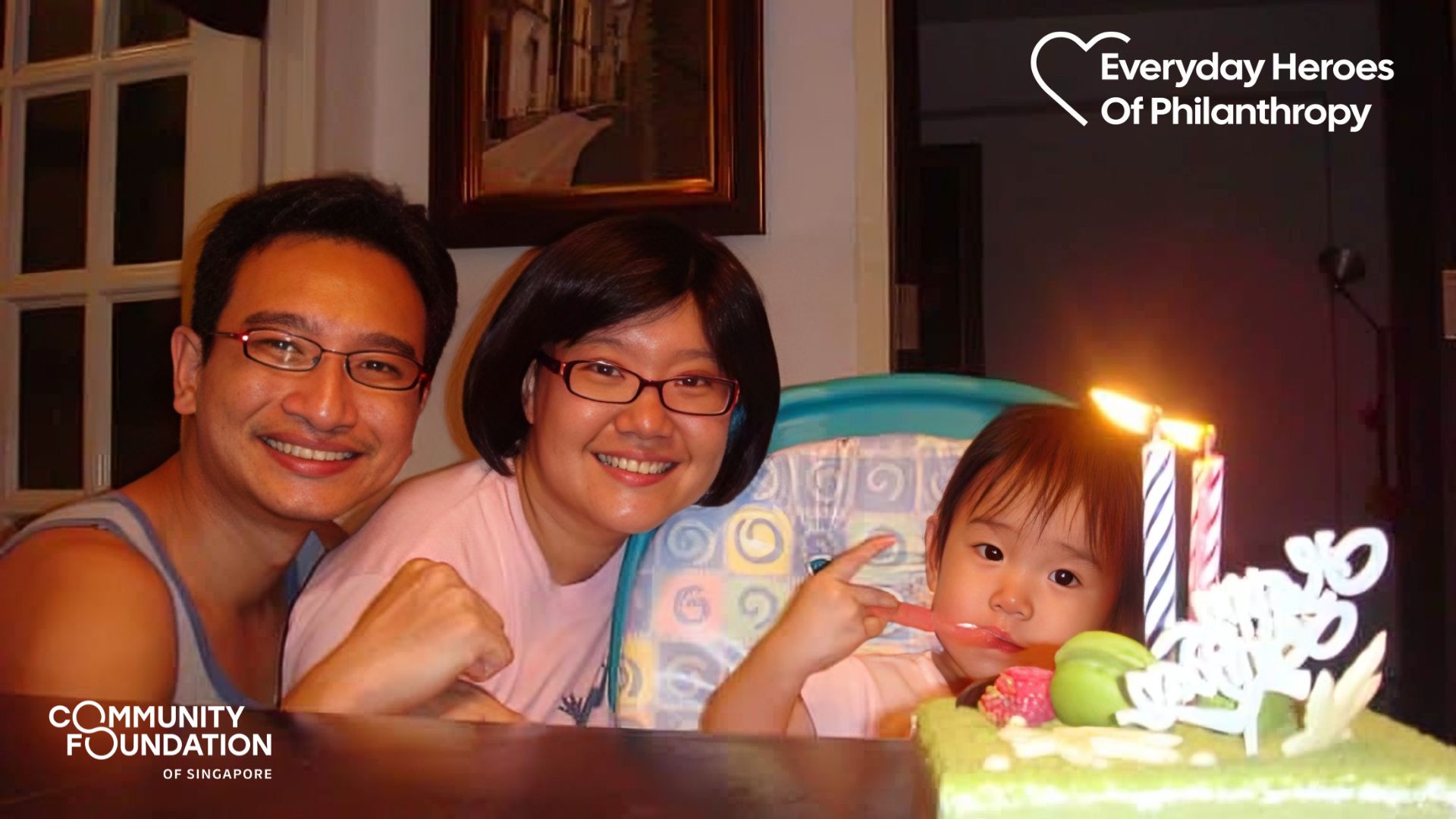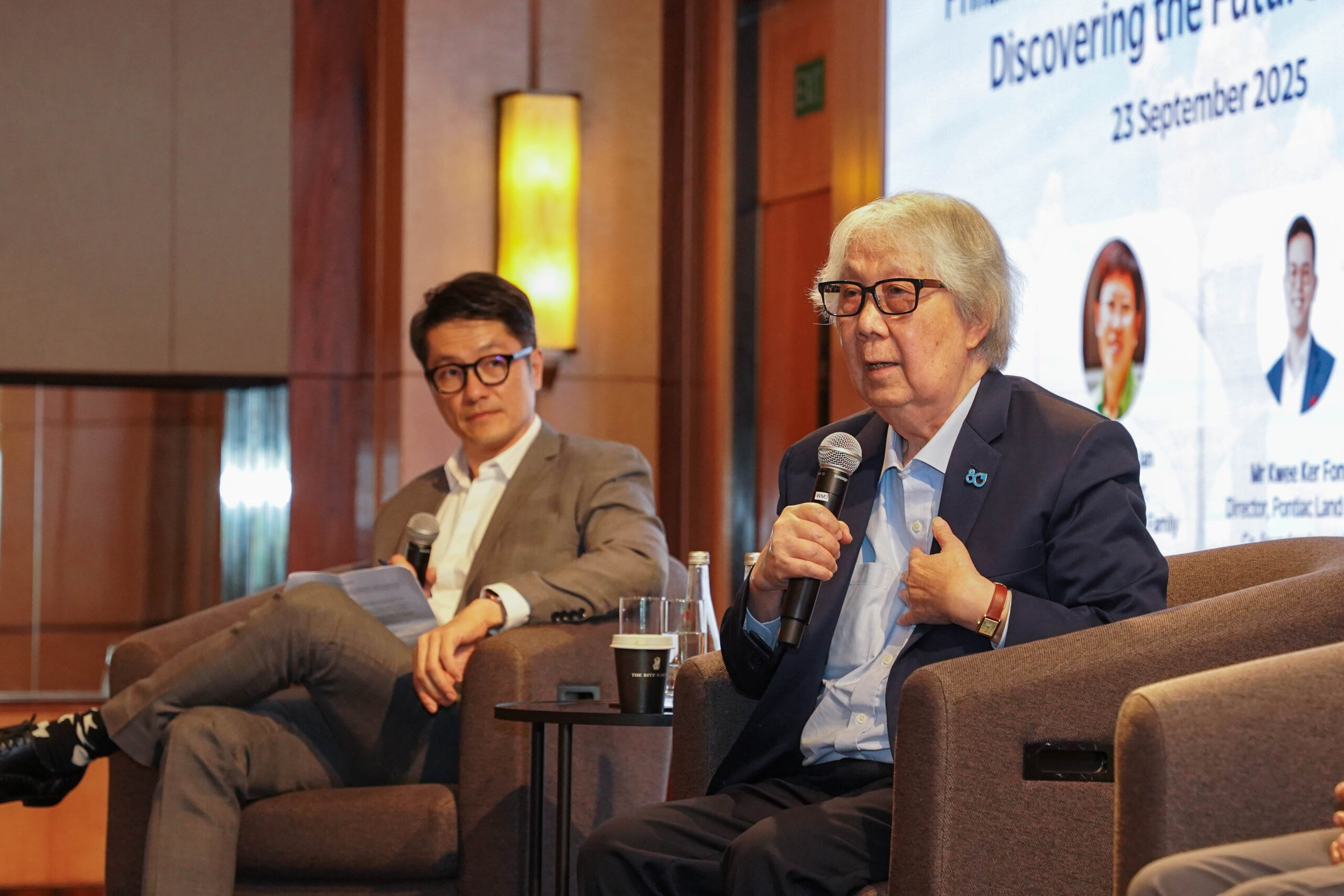The S.S. Jhunjhnuwala Charity Fund: Honoring a Father’s Legacy


For CFS donor Mr Surya Jhunjhnuwala, the late patriarch Shyam Sundar Jhunjhnuwala who founded the Hind Group, was a devoted father and man of vision, passing on to his children the values of humility, hard work and honesty. These principles were ingrained into them at a young age and have guided his family through both good and challenging times.
The S.S. Jhunjhnuwala Charity Fund was set up by the Hind Group to honour him. The Fund, managed by The Community Foundation of Singapore, is proof that S.S. Jhunjhnuwala’s legacy lives on, its grants supporting welfare initiatives and underprivileged women.
Mr Jhunjhnuwala was also a forward thinking visionary of his time. He was a passionate believer that girls should receive equal opportunity, and that they should receive a good education. He was a mentor for one of the first all-girl schools in his ancestral home of Rajasthan, and this belief has also been entrusted and passed down to his children.
The S.S. Jhunjhnuwala Charity Fund believes that education is the most vital tool in unlocking the potential of children and young adults, hence its mission to provide students in Singapore with opportunities to achieve their potential and a chance to create for themselves a life they dream of.
The Fund currently provides two grants to the Singapore Institute of Technology (SIT). The first is the SS Jhunjhnuwala Naumi Hotel Bursary, given in perpetuity to female students who wish to pursue an education in the field of hospitality, created with the late patriarch’s vision of equal opportunities for women in mind.
The second grant is the VD Jhunjhnuwala Naumi Hotel Emergency Grant, which supports students facing unforeseen difficult situations and gives them a chance to continue their education. Over the years, they have also supported Gladiolus Place, Ramakrishna Mission-Boys’ Home and the Migrant Workers’ Centre.
‘’My father embodied the principle of honesty, and through his strong character and resolve he taught me the importance of consistent and conscious hard work. Our hope for the S.S. Jhunjhnuwala Charity Fund is to create a legacy of continuous service and impact. Giving back is at the core of our business, and a duty we take seriously. I fondly remember my father who taught me to live a life of integrity,’’ shares Mr Surya Jhunjhnuwala.
Learn more about our Donor advised funds here. If you would like to start your giving journey and provide support for the causes close to your heart, get in touch with us at contactus@cf.org.sg to find out how you can make an impact with your giving.
For CFS donor Mr Surya Jhunjhnuwala, the late patriarch Shyam Sundar Jhunjhnuwala who founded the Hind Group, was a devoted father and man of vision, passing on to his children the values of humility, hard work and honesty. These principles were ingrained into them at a young age and have guided his family through both good and challenging times.
The S.S. Jhunjhnuwala Charity Fund was set up by the Hind Group to honour him. The Fund, managed by The Community Foundation of Singapore, is proof that S.S. Jhunjhnuwala’s legacy lives on, its grants supporting welfare initiatives and underprivileged women.
Mr Jhunjhnuwala was also a forward thinking visionary of his time. He was a passionate believer that girls should receive equal opportunity, and that they should receive a good education. He was a mentor for one of the first all-girl schools in his ancestral home of Rajasthan, and this belief has also been entrusted and passed down to his children.
The S.S. Jhunjhnuwala Charity Fund believes that education is the most vital tool in unlocking the potential of children and young adults, hence its mission to provide students in Singapore with opportunities to achieve their potential and a chance to create for themselves a life they dream of.
The Fund currently provides two grants to the Singapore Institute of Technology (SIT). The first is the SS Jhunjhnuwala Naumi Hotel Bursary, given in perpetuity to female students who wish to pursue an education in the field of hospitality, created with the late patriarch’s vision of equal opportunities for women in mind.
The second grant is the VD Jhunjhnuwala Naumi Hotel Emergency Grant, which supports students facing unforeseen difficult situations and gives them a chance to continue their education. Over the years, they have also supported Gladiolus Place, Ramakrishna Mission-Boys’ Home and the Migrant Workers’ Centre.
‘’My father embodied the principle of honesty, and through his strong character and resolve he taught me the importance of consistent and conscious hard work. Our hope for the S.S. Jhunjhnuwala Charity Fund is to create a legacy of continuous service and impact. Giving back is at the core of our business, and a duty we take seriously. I fondly remember my father who taught me to live a life of integrity,’’ shares Mr Surya Jhunjhnuwala.
Learn more about our Donor advised funds here. If you would like to start your giving journey and provide support for the causes close to your heart, get in touch with us at contactus@cf.org.sg to find out how you can make an impact with your giving.
- Related Topics For You: ACCESSING QUALITY EDUCATION, CHARITY STORIES, CHILDREN, DONOR STORIES, DONOR-ADVISED FUND, EDUCATION, INCLUSIVITY & INTEGRATION, LEGACY GIVING, NEWS, STORIES OF IMPACT, YOUTH


